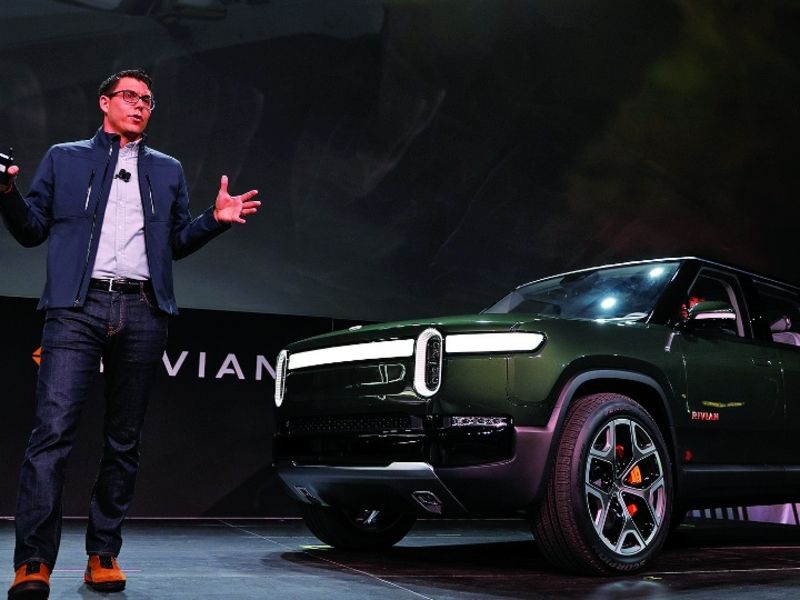
With production of its first customer vehicles scheduled to begin in about seven months, Rivian is moving quickly to establish it parts and service operations. The company also has taken its first steps toward building a nationwide network of body shops to handle accident repairs.
Rivian CEO RJ Scaringe told Automotive News that the company plans to have a fully operational service network ready before most customers take delivery of their battery-electric R1T pickups and R1S SUVs.
Customers, he said, will have two options for repairs that cannot be carried out by over-the-air software updates: They can visit a brick-and-mortar service center or schedule mobile service at their homes and businesses. That plan closely mimics Tesla’s strategy.
In a wide-ranging interview with Automotive News Publisher Jason Stein on the “Daily Drive” podcast, Scaringe for the first time addressed how Rivian will offer service for its vehicles without a traditional dealership network.
Rivian also last week opened a process for independent body shops to apply to become members of the Certified Rivian Repair Network. Auto-body trade publication Repairer Driven News reported that Rivian plans to sell structural repair parts and high-voltage electrical repair components only to members of the network. To start the evaluation process, Rivian is asking independent shops to fill out an online questionnaire.
It’s not clear whether franchised new-vehicle dealerships that operate body shops can apply. Some dealerships — such as Ford, Jaguar and Audi — that have experience working on aluminum-bodied vehicles would be a good fit for Rivian because they have the special tools and trained body technicians.
By the time the first R1T electric trucks are delivered to customers in June, Rivian will have service centers open in major markets and be operating a fleet of mobile service units that can carry out most repairs at homes and businesses, Scaringe said.
“We’re launching a large number of service centers throughout the U.S., really in the next nine months, 41 service centers. In addition to those service centers, we’re building a very robust network of mobile service [providers] that will come to you, your business or your home,” Scaringe said.
Because electric vehicles have only a small fraction of the moving parts used in vehicles powered by gasoline and diesel engines, maintenance requirements for EVs usually consist of little more than wheel alignments, tire rotations and replacement of regular wear parts, such as burned-out lightbulbs and worn-out wiper blades.
“What we deeply believe is that a significant majority of service operations necessary on a vehicle can be done remotely, can be done with our mobile service network, which from a customer’s point of view simplifies things dramatically. They no longer have to think about dropping their vehicles off. Service just happens when customers are at their house or at their office,” Scaringe said.
The company also will service Amazon’s electric delivery vans alongside the R1T and R1S. Amazon has ordered 100,000 electric vans from the startup automaker.
Said Scaringe: “The Amazon program actually provides a really very useful and critical service-demand pool. One of the challenges of launching a service network for a company that doesn’t have a fleet or a car park just yet is that on day one of year one, you need to have service supply, but you don’t yet really have service demand. What’s important from a service-network point of view is that you need that capacity on the supply side. The Amazon program will ramp that up very quickly, and the service infrastructure — both mobile and physical — supports not only the Rivian vehicles but also the Amazon fleet.”
Rivian is on track to start retail sales of its truck and SUV in the second quarter of 2021. Its plant in Normal, Ill., is building vehicles now that are being used to test the company’s production system, train workers and rack up real-world test miles.
Speaking from the plant Scaringe said, “We are building an entire digital commerce platform that allows vehicles to be transacted on, allows a Rivian-based insurance platform to be launched, houses our financing platform, but also, very importantly, houses everything in and around service.”